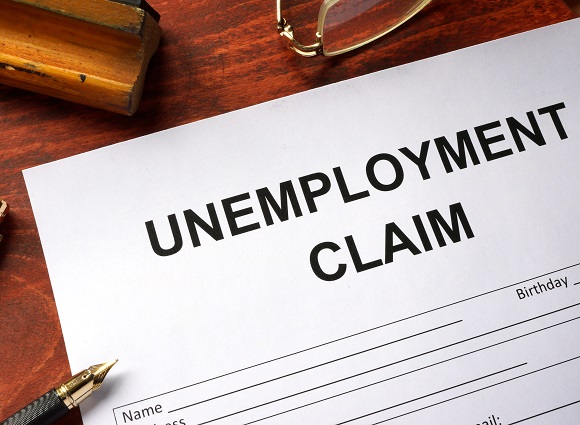
Can Employees Collect Unemployment if They Refuse to Return to Work?
Many states are beginning to reopen in phases and employees are being called back to work. In general, most states have provisions that require workers receiving unemployment benefits to be actively seeking work, but many states relaxed that requirement due to the coronavirus (COVID-19) pandemic. Some states are now warning unemployment benefit recipients that if their employers are reopening but they refuse to go back to work, they’ll be deemed to have refused work and will be ineligible for unemployment benefits as a result.
Disqualification
State unemployment laws generally disqualify an individual from claiming unemployment benefits if they refuse suitable work. Being called back to work and refusing may fall under this disqualification category.
Here’s some information about how eight states have addressed this issue.
1. Kansas. In a “Job Refusal” guide on its website, the Kansas DOL states, “If an individual is not considered high-risk for COVID-19, or does not reside with someone considered high-risk for COVID-19 and refuses to return to work, the individual may be disqualified for benefits. A claimant who refuses to apply for suitable work, refuses to return to work, or otherwise refuses an offer of suitable employment, without good cause, may be disqualified for unemployment insurance benefits. Claimants are required to report whether or not they refused work during the week claimed during the weekly claims process. Employers can report job refusals by submitting a job refusal form. For more information, visit: https://www.dol.ks.gov/docs/default-source/default-document-library/job-refusal-info
2. Missouri. Generally, unemployment benefit recipients will be deemed ineligible for benefits if they refuse suitable work. However, the Missouri Department of Labor issued a series of questions and answers explaining when an employee recalled by their employer still qualifies for benefits due to COVID-19. These exceptions include: 1) the worker has tested positive for COVID-19 and is still experiencing symptoms; 2) the worker has recovered but it resulted in medical complications rendering the employee to be unable to perform essential job duties; 3) a member of the worker’s household has been diagnosed with COVID-19; 4) the worker provides care of a member of the household who was diagnosed with COVID-19; 5) the worker doesn’t have childcare due to COVID-19; or 6) the worker doesn’t have transportation due to COVID-19.
However, U.S. Department of Labor’s guidance states that general fear of COVID-19 won’t support continuation of unemployment benefits under regular unemployment or any of the federally funded programs available under the CARES Act. If an employer provides an employee with suitable work, and the employee chooses not to return to work, then unemployment benefits will cease. Employers should report quits or work refusals as soon as possible. For more information, visit: https://labor.mo.gov/coronavirus
3. Iowa. The Iowa Workforce Development (IWD) announced that businesses should report employees who refuse to go back to work “without good reason,” or who quit their jobs on a IWD website form. Previously, the IWD issued a notice that employees, who were laid off as a result of COVID-19 but who refuse to go back to work when recalled by their employers, will lose unemployment insurance (UI) benefits.
An exception to this loss-of-UI benefit rule applies in some specified cases, such as if an employee or a member of an employee’s household has tested positive for COVID-19 or has childcare or transportation issues related to COVID-19. “Refusing to return to work when recalled for any other reason, or in an attempt to continue to draw unemployment benefits will be considered a ‘voluntary quit’ which would disqualify a claimant from receiving benefits, including the Federal Pandemic Unemployment Compensation benefit of $600/weekly,” the announcement stated. For more information, visit: https://www.iowaworkforcedevelopment.gov/iwd-announces-guidance-unemployment%C2%A0benefits-iowans-who-refuse-return-work-without-good-reason-when
4. Minnesota. In a question on its website, the Minnesota Department of Employment and Economic Development states that if an employer reopens and an employee is able to return to work, the employee must do so. “Refusing to return to work may affect your continued eligibility for unemployment benefits,” the department states. For more information, visit: https://mn.gov/deed/newscenter/covid/safework/workers/faqs/
5. Oklahoma. During a series of video meetings with businesses, Oklahoma Secretary of Commerce and Workforce Development Sean Kouplen said that workers who are receiving unemployment benefits can lose those funds if they refuse job offers from their former employers as the state reopens. He added that it’s likely a person would have to return to work or lose their unemployment benefits if: 1) the person isn’t considered part of a vulnerable population to COVID-19; 2) the job offered has the same or greater pay; and 3) the business is taking steps to mitigate the spread of the disease at the workplace.
However, Kouplen acknowledged that clarity is needed to adjudicate these decisions and the Oklahoma Employment Security Commission is seeking guidance from the U.S. Department of Labor.
6. South Carolina. The South Carolina Department of Employment and Workforce (SCDEW) posted a notice on its website advising employers that individuals who turn down offers of suitable work aren’t eligible for UI benefits during that week. If an employer has offered an individual a job and he or she refuses it, the employer is advised to report the incident to SCDEW through an on-line portal.
The SCDEW offers a link to an Employer Refusal of Job Offer Guide. For more information: https://dew.sc.gov/employers/ui-benefits/hiring-new-workers/offers-of-work
7. Tennessee. Governor Bill Lee issued Executive Order No. 30 that permits some Tennesseans to return to work under certain guidelines. The Tennessee Department of Labor and Workforce Development states on its website that if unemployment benefit recipients fail to return to work when called, or fail to accept suitable work when offered, they’re no longer eligible for unemployment benefits. “Any benefit you collect after refusing work will result in an overpayment and must be paid back,” it adds.
For more information: https://lwdsupport.tn.gov/hc/en-us/articles/360045580014-What-happens-if-I-do-not-return-to-my-job-when-called-or-do-not-accept-suitable-work-when-offered-
8. Texas. The Texas Workforce Commission issued guidance for unemployment claimants. While generally unemployment benefits are denied to recipients who refuse suitable work, as a result of COVID-19, a worker will remain eligible for benefits after refusing to return to work if the worker is: 1) at high risk (such as people 65 years or older); 2) caring for a household member who is at high risk; 3) diagnosed with COVID-19 and hasn’t recovered; 4) caring for a family member with COVID-19 who hasn’t recovered and 14 days haven’t yet passed; 5) is under a 14-day quarantine due to close contact exposure to COVID-19; and 6) caring for a child whose school or daycare is closed and no alternatives are available.
To read the Texas guidance, visit: https://www.twc.texas.gov/texas-workforce-commission-issues-guidance-unemployment-claimants
A Changing Environment
The unique circumstances that COVID-19 has brought on have caused guidance from state agencies to change. Check with your payroll and tax advisors for the latest information in your situation.
This content was created during a snapshot in time and should be relied upon as such. Legislation and guidance continue to change as we progress through the current fluid environment and the information may not be applicable at a later date. All content and materials are for general information purposes only. If you have questions regarding your specific situation, please contact us.



